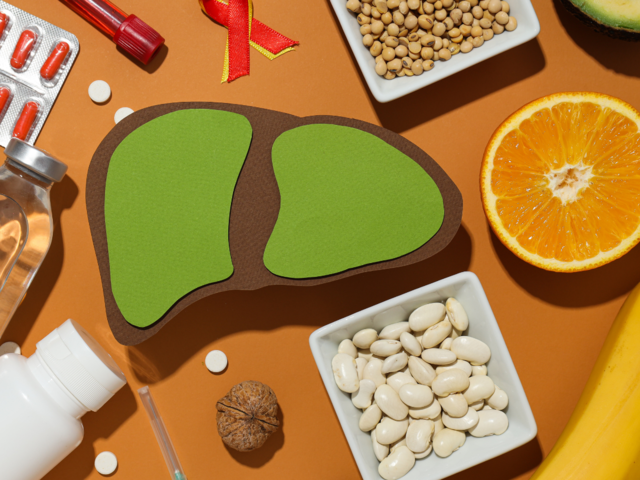
Sapna Arora, Chief Marketing Officer, OLX India BI India
Arora also walked us through OLX’s combat strategy which was in tandem with the government’s four lockdown phases.
Jul 3, 2020, 10:00 IST
brands
Marketers should use their own moral compass while communicating with consumers: Sapna Arora, OLX
Jul 3, 2020, 10:00 IST
Arora also walked us through OLX’s combat strategy which was in tandem with the government’s four lockdown phases.
- In our latest series, we talk to brands about how they have been marketing during these adverse times, the things they have learnt and how they are preparing for the somewhat uncertain future.
- Sapna Arora, Chief Marketing Officer, OLX India shares with us her learnings of the lockdown period, the brand’s strategy to adapt to the constantly changing environment and action plan for
unlock 2.0 .
OLX India’s Chief Marketing Officer, Sapna Arora told us how this period taught her the importance of using your own moral compass while communicating with your target audience. Even though the times were grave, the e-commerce brand used a little humour to laugh with its customers.
Arora also walked us through OLX’s combat strategy which was in tandem with the government’s four lockdown phases and shared how it found a stable corner in a fluid environment.
The transition started by taking a step back, observing the consumers for a while even if it meant being silent for that period -- to figure out the correct tone. It decided to opt for a reassuring, empathetic and humorous tone to walk along with its consumers. The second wave of communication was to spread a tad of positivity by reminding consumers they can make the most of their time even inside four walls. OLX’s Third and fourth phase of marketing was all about lending a hand in adjusting to the new normal, redefining the meaning of home and moving to a stage of acceptance and decluttering.
As we enter unlock 2.0 phase, Arora further shares with us how consuming from the comfort of our homes will continue trending, why it is important to feel what your consumers are feeling and draft messages to resolve those concerns every time you communicate and everything else that OLX has planned for the new world order.
Q. How have the last three months been for you?
It has been a ride with a heady mix of chaos, assumptions, small wins and many learnings.
While we were keen to continue to communicate with our user base, we spent some time figuring out the correct tone. We went ahead using our own moral compass of how we would like to be spoken to. As humans caught in this situation where currently all seemed normal, yet, danger lurked around. We communicated with our consumers in a low, reassuring, empathetic tone in order to assuage their anxiety.
We did a second wave of communication around working with our consumers in helping them make sense of what was happening around. In some way, helping them resolve their emotions and steer them in a positive direction - hence we had a series of messages around what the consumers could do while they were stuck at home. There was no hard-sell of brand OLX.
In a third wave, when we gathered that people had settled into a routine and come to terms with living in a lock-down, we wanted to help them get more comfortable with their living and working spaces. Hence the idea of decluttering. This is also when we talked of brand OLX.
In the fourth way, we took the idea of decluttering further and helped the consumer with decluttering ideas around specific parts of their homes.
Q. Have you observed consumer behaviour changing?
With such a drastic change in lifestyle, there has definitely been a change in our behaviours as well. Some very defined trends have come up:
Reliance on digital/ video based solutions:
Instead of asking “Is there a reason to do this online?”, we are asking “Is there any good reason to do this in person?” Even local retailers are now offering ‘phygital’ stores and live-streaming as a concept has resurfaced again, back from the good-old days of ‘tele-shopping’ networks. A stark example of digital shift is seen in the auto industry. Even though it is a high ticket purchase, almost 70% of buying decisions are now taken online. Automobile brands are experimenting with new forms of content such as augmented reality, virtual reality and more. Similarly, in other categories too, brands will increasingly create digital touchpoints to move closer to their consumers and this will enable real-time conversations between both.
Reduced discretionary spending and tendency to opt for affordable or alternative solutions hence propensity for pre-owned goods has been on the rise.
People are increasingly wary of their expenses and have taken a conservative approach to the same. Consumers will weigh in their options before making a purchase and most of their purchases will be digitally-driven. This has translated into a strong growth for our pre-owned auto segment. Pre-owned cars are about 10%-50% cheaper than new cars hence as consumers look to up their hygiene quotient by shunning public transportation, pre-owned car demand has seen a multifold rise.
Reframed meaning of home
Spending extended periods of time at home has forced people to rethink their homes as spaces for working, relaxing and exercising, among other activities.
Home takes on a whole new meaning as individuals and families figure out new ways to balance their work-life needs within the confines of their space. Going forward, we can expect setups at home that go far beyond a second screen. People will bring in special equipment, machines, and advanced video/audio setups to accommodate this change in lifestyle. Policies and new insurances will need to follow.
Large packages are growing at an exponential rate, and we're going to continue to iterate in the space.
Q. What are some things that you think will never be the same once we resume normalcy?
Needless to say, some things will be forever impacted by the new habits that we have formed as consumers and the new innovations and pivots that corporations have subsequently made. Social distancing is here to stay for a long time to come at least until a vaccine is available. Humans by nature are social yet owing to social distancing there will be a marked reduction in the way consumers or brands interact with each other. Our entire societal ecosystem and relationships are built on trust which stems largely from in-person contact and communication and hence other ‘surrogates’ for trust would have to be developed.
Consuming from the comfort of our homes is also a trend that will continue in a large way. These may include remote working and home shopping, which will drive opportunities for connectivity, distance learning, video conferencing, home office equipment, e-commerce, delivery services and the like.
Travel is an area which will witness a profound impact as people would question if it's necessary to travel at all especially related to work. Only essential travel would be deemed suitable by users hence there would be decline in footfall in mass travel mediums and tourism related travel.
Brands will increasingly grow conscious of their marketing spends and focus more on business continuity especially as more consumers move online and reinvention of business models for adapting the new normal will continue. Increasingly, we will see more brands come online and focus on the same as their primary marketing channels.
Q. As markets open up, how are you ensuring that your consumers start trusting you?
In the last 10 years, OLX has become synonymous with buying and selling anything online owing to which we have built a huge corpus of trust amongst consumers.
As the markets open up, we have been advocating for the need to practice social distancing and practising right sanitization protocols for consumers via our marketing communication. On our retail front with
Q. How do you see the e-comm sector shaping up? What would its future look like?
Owing to the lockdown, e-commerce and online marketplaces has seen a boost. Once the lock-down ‘stabilized’ and ecommerce companies were in full swing, with the local physical stores being closed, there was an inevitable shift of consumers from offline to online. The pandemic has allowed buyers to throng to online marketplaces in order to cater to their needs. The transition is divided into three phases now, next and beyond, according to a recent report by EY.
A quantum change will come when there is an increase in ecommerce sales in tier 2 and 3 towns, where digital consumption of content has increased but digital transactions are still low.
Q. Has the current situation made you innovate and think out of the box, in terms of how you communicate with your consumers?
Our communication has been driven by how we felt the consumers’ fears, anxiety, concerns, needs were playing on their minds during various phases of the lock-down.
Our communication in India moved in four phases, almost in tandem with the phases of the central government’s lockdown. At the beginning, we advocated and educated our users on how to stay safe, keep their hygiene quotient up via creative communication tools such as images, gifs and videos. Across the second stage, we spoke about positivity and getting comfortable at home by using one’s time in activities such as reading, cooking, spiritual well-being etc.
Subsequently, once consumers had settled into a routine and given our homes had become our sanctuaries, we spoke about decluttering and how it improves one's mental wellbeing. We did this sans any brand focus on OLX. The campaign centered around how decluttering could ameliorate the stress levels amongst users. Research has stated that a cluttered environment affects our efficiency and most households often have plenty of items they no longer use. By decluttering our environment, we are addressing how it helps alleviate accumulated levels of stress related to upkeep of the same.
Thereafter, we gave specific decluttering tips, educating the user on how they could make the most out of the space and possessions they had.
Additionally, we have also been focusing on highlighting positive stories around how consumers are using OLX to assist the most affected during COVID-19 via short films. We recently reached out to two lovely kids and their families on how they sold off their old toys on OLX to raise money for the PM cares fund. Marketing communication needs to be simple, positive and focus on giving hope to people amidst these testing times.
Q. What does your media plan look like? Which medium gets your lion's share?
As a digital-first brand, we have always had a major focus on digital media and ancillary focus traditional media. We have in the past leveraged traditional mediums such as television, OOH and radio. However, as digital usage has shot through the roof we have also been experimenting with new-age platforms. Right now, our focus is primarily on digital but we are not bound to the same. Prior to any campaign, we evaluate the best possible medium to reach out to the consumers and take a call on the same.
Q. What are some of the key learnings from this experience?
Key learnings are:
- Marketers should use their own moral compass in how they communicate with the consumer.
- Keep the dialogue on - Brands should carry on communicating albeit in a sensitive manner.
- Don't veer off track from your long term strategy - Even though the situation is extremely fluid brands shouldnt lose sight of their long term strategy. Brands should stick to their original purpose unless the circumstances have led to thought-through pivot in the business operations.
INSIDER INTELLIGENCE REPORTS







